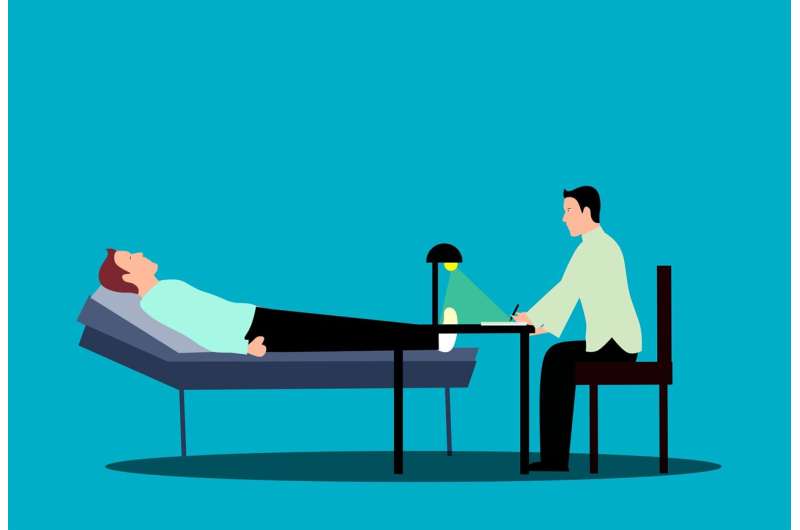This article has been reviewed according to Science X's editorial process and policies. Editors have highlighted the following attributes while ensuring the content's credibility:
fact-checked
peer-reviewed publication
trusted source
proofread
Psychotherapy online: What psychology students think about it

The more positive the personal attitude of psychology students toward video psychotherapy and the greater the positive expectations and experiences, the more they are willing to offer video psychotherapy after graduation. This was discovered by a research team led by Professor Kai Kaspar at the University of Cologne's Department of Psychology.
Scientists from Cologne's research area in social and media psychology conducted a study with 255 students of psychology who want to work as psychotherapists in the future. The study "Understanding psychology students' perspective on video psychotherapy and their intention to offer it after graduation: A mixed-methods study' was published in the journal Frontiers in Psychology.
Not least due to the COVID-19 pandemic, video psychotherapy has gained enormous significance. Whether this form of therapy is offered ultimately depends on the therapist's individual therapeutic attitude and motivation. The study investigated the extent to which the intention to conduct video psychotherapy is related to personal characteristics of future practitioners.
"We found that four variables in particular are positively associated with the intention of psychology students to offer video therapy after graduation. The personal attitude toward video psychotherapy was the most important variable. The other important factors are the expected usefulness of this therapy method, personal satisfaction with previous video conferences and the perceived social pressure to offer video psychotherapy," said lead author Kaspar.
In addition, the study participants were asked about the perceived advantages and disadvantages of video psychotherapy. Based on more than 1,700 responses, 17 advantages and 18 disadvantages were identified. "We find that there is a tendency to identify more disadvantages than advantages, but overall the results show a very differentiated and balanced perspective of the students on video-based psychotherapy," explained co-author Jennifer Meier.
The most frequently mentioned advantages include low-threshold therapeutic offers in a familiar environment, greater flexibility, no travel necessary, and reduced mental and physical barriers. Protection against contagious diseases is also frequently cited, as well as an overall better accessibility to the therapeutic offer, for example in the form of shorter waiting times and better patient care.
The most frequently mentioned disadvantages include a lack of closeness between patients and therapists, reduced non-verbal communication opportunities, technical problems and lack of safe spaces for patients. The study participants also express concern that video psychotherapy is inappropriate for certain disorders and treatment methods and could lead to a reduced commitment and motivation of the patients.
Finally, the prospective psychotherapists were asked what specific learning opportunities they would like to integrate into their studies in order to feel as prepared as possible to carry out video psychotherapy. Training courses for technical skills, role-playing games for practical testing of the method, as well as detailed information on video psychotherapy including legal aspects are particularly sought after. Other mentioned learning opportunities are the training of communication techniques and how to develop a therapeutic relationship via video conferences.
The students also wanted in-depth insights into appropriate methods and practical examples, as well as information on how to deal with difficult situations in video psychotherapy. "What is striking is that the students demand the same learning opportunities regardless of their study progress. In addition, the students attribute a high to very high relevance to all the content they wish to learn in order to feel well prepared for the implementation of video psychotherapy," said co-author Josephine Noel.
"The new generation of psychotherapists will play a decisive role in how the therapy will be designed in the coming years and whether video-based formats will be established permanently and on a broad scale," said Kaspar. "Against the background that the training of psychologists and psychotherapists at German universities is currently undergoing a fundamental reform, our results provide a good basis for the design of appropriate training content. In our study, we outline what this process could look like."
More information: Jennifer Virginie Meier et al, Understanding psychology students' perspective on video psychotherapy and their intention to offer it after graduation: a mixed-methods study, Frontiers in Psychology (2023). DOI: 10.3389/fpsyg.2023.1234167



















